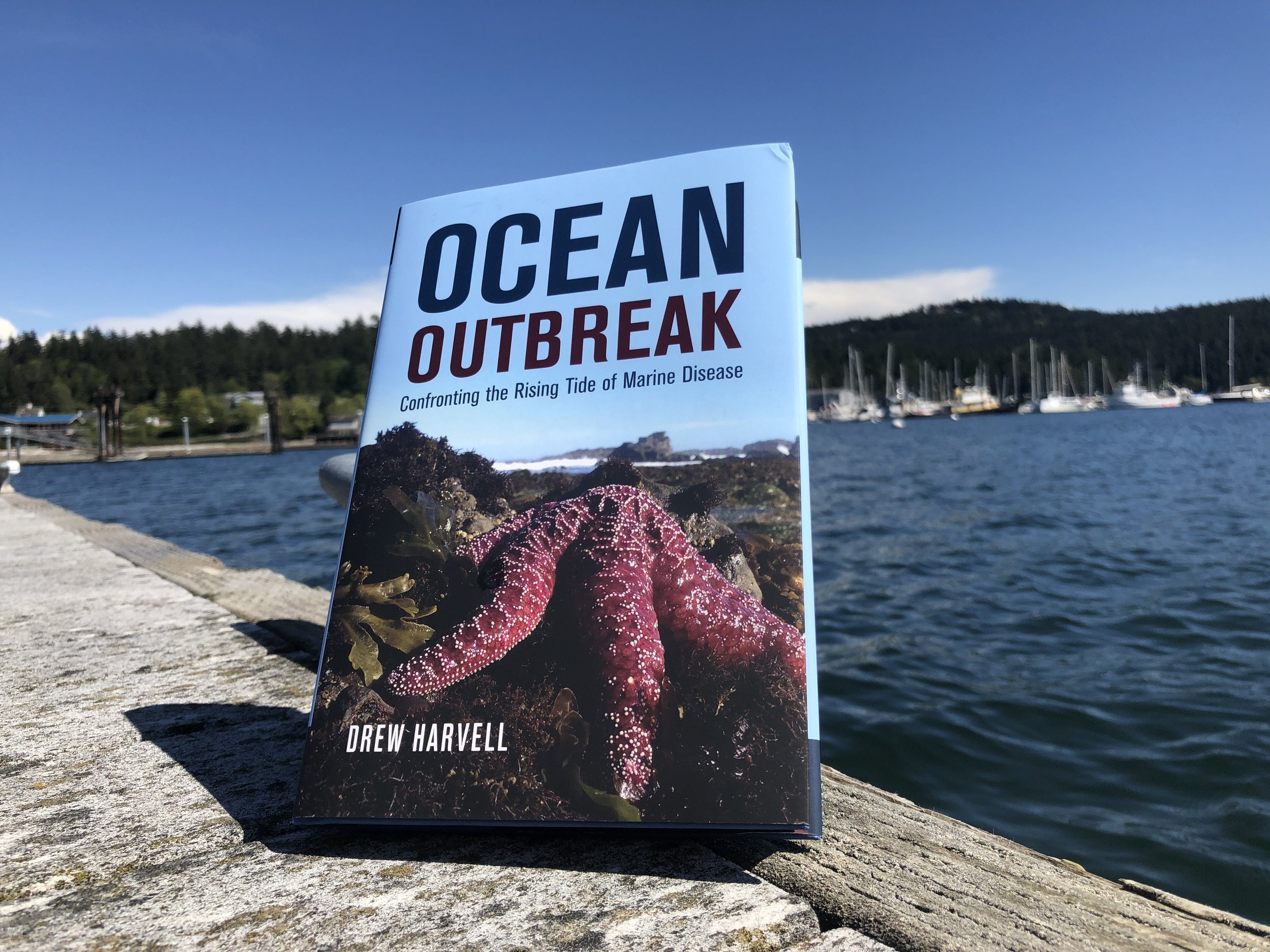Below, SeaDoc Society Science Director Joe Gaydos reviews the latest book by Drew Harvell.
Ask any ocean lover to name the biggest threats to ocean conservation and you’ll get a list so long it will make you uncomfortable: derelict fishing gear, increasing underwater noise, invasive species, ocean acidification, overharvest, plastics, toxins, warming water, and so on.
What you probably won’t hear is the word disease—not because the agents of disease are microscopic and out of sight, but because we know so little about how they affect the marine environment. Most people have never thought of parasites and pathogens as agents of change or important ocean stressors.
Drew Harvell puts an end to that with her new book Ocean Outbreak: Confronting the rising tide of marine disease. The narrative is beautifully written and designed to even be consumed by people who know nothing about infectious diseases or, worse yet, might fear words like “microbe” or “pathogen” the way a 6th grade math phobe would look at his/her first quadratic equation.
Keeping it simple, Harvell uses examples of disease epidemics in coral, abalone, salmon and sea stars to show how infectious diseases shape marine ecosystems. She also demonstrates how the animal’s immune system, the environment, and the pathogen, interact to cause disease while subtly weaving in the lesson that human actions can spread or exacerbate disease outbreaks.
By the end of the book you will be using terms like rickettsia or Ichthyophonus at cocktail parties like one of my pre-teen daughters wondering if her flu bug was an H5N1 amidst the heavy news coverage of the global flu pandemic several years ago.
But the book is not just for disease neophytes. Harvell is a skilled science writer and covers the topics with sufficient depth to keep disease aficionados on their toes, marveling at the complexity of diseases in the ocean. She even includes more than a dozen graphs and figures suitable for, or gleaned from, peer-review publications.
Without hope we are hopeless, and after describing how our actions are giving ocean microbes the upper hand, Harvell fortunately still manages to give us hope. She reminds us that disease outbreaks are costly and dangerous for our threatened ocean and that by paying more attention to disease we can more quickly diagnose and respond to the next outbreak. And while we’re hoping, I’d like to see us finally get our ocean conservation A-game on and maybe even prevent that next big epidemic.
Find a copy at a local book store or order it online:

